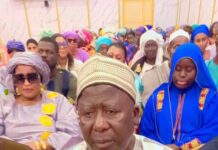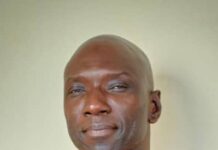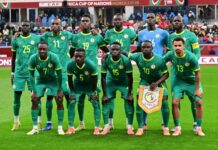In the fall of 2017, several of us came together as Black Muslim students at Barnard and Columbia in dire need of a space on campus and the surrounding community for Muslims of the African diaspora. In April 2019, the Muslim Afro Niyyah Students Association, MANSA, had been officially recognized by Columbia’s Student Governing Board as a student organization on campus. In this 18-month period, the question we got most often was: “Why should we have both Muslim Students Association and MANSA?” The answer is plain and simple: because inclusion does not always mean diversity of voices.
The intersection of race and religious affiliation shape how Black and Muslim students experience these identities and the respective communities of these identities. African-American Muslims simultaneously face anti-Muslim hostility, state Islamaphobia, and internal Muslim anti-Black racism. A poll by the Institute for Social Policy and Understanding in 2017 revealed that “33 percent of Muslims who identify as Black or African American reported experiencing racial discrimination at the hands of another Muslim.” Conversely, post Sept. 11 Islamophobia shapes Black and Muslim students’ experiences within different social, political and economic spheres.
However, this intersection of the Black and Muslim identities are made invisible in white-dominated spaces. Kimberlé Crenshaw, in the paper in which she coins the term intersectionality, wrote that the “focus on the most privileged group members marginalizes those who are multiply-burdened and obscures claims that cannot be understood as resulting from discrete sources of discrimination.” This has been the case for Black Muslims at Columbia and beyond. Black Muslims’ experiences and perspectives are often excluded from the dominant American Muslim narrative. Moreover, the voices of Black Muslim individuals are often left unheard. Our communities come together to raise awareness for crises in Palestine, Syria, and Lebanon, and yet when Black and Muslim individuals died in the Bronx fire in January, it was Cardi B who stepped up to pay for all the funeral expenses. What she did was gracious. But where were our Muslim brothers and sisters?
Furthermore, we do not talk about the historical or current contributions of African American Muslims to Islam, or to the building of America, including in relevant classes in our prestigious academic institution. Contemporary Islamic Civilization, a course in the Middle Eastern, South Asian, and African Studies department taught by professor Nathanael Shelley, centers around North African civilizations, never mentioning the West African contributions to contemporary Islamic civilizations.
Why do we have to have a Black Muslim organization? Because we need to remember that Black and Muslim experiences are made invisible in white-dominated narratives, spaces, and institutions. Because real inclusion is the inclusion of Black and Muslim voices in predominantly white or Christian platforms, rather than the inclusion of Black bodies and Muslim faiths in mostly white or Christian spaces. Because diversity is not enough for our moral conscience if diversity means that the unique experiences that come from the intersection of Black and Muslim identities are erased to fit and fade into a wider whole.
It’s not enough to be anti-racist. We must think about how the intersections of religious faith, gender identity, sexual orientation, citizenship status, and race can escalate and complicate the discrimination caused by one layer of marginalization. We must actively ask ourselves whose voices we are silencing when we group marginalized communities together under the name of diversity and inclusion. We must find ways to diversify our narratives. We must make our inclusion an act of offering a platform to marginalized voices rather than just a space for marginalized bodies. It’s not enough to make room. We must also learn to be the echo that amplifies the voices of those who speak in that room.
Khadija Balndeh is a senior in General Studies studying economics and sociology. She is the president of MANSA.






